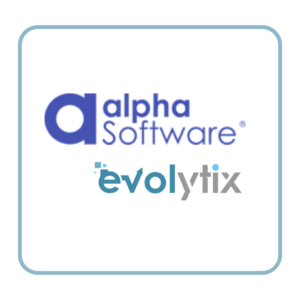In today’s data-driven world, the concept of data democracy, or data democratization, is becoming increasingly crucial for organizations aiming to stay competitive. Data democratization refers to the process of making data accessible to all employees within an organization, irrespective of their technical skills or job roles. This approach empowers employees to make data-driven decisions, fosters a culture of innovation, and ultimately drives business success. In this blog post, we will explore the importance of data democratization, its benefits, and successful case studies that highlight its transformative impact.
The Importance of Data Democratization
Traditionally, data within organizations has been siloed and accessible only to IT or specialized data teams. This centralized approach often leads to bottlenecks, delays in decision-making, and missed opportunities. Data democratization addresses these issues by:
- Enhancing Decision-Making: When data is accessible to all employees, they can make informed decisions quickly and independently. This leads to more agile and responsive business operations.
- Fostering Innovation: Democratizing data encourages a culture of experimentation and innovation. Employees are more likely to explore new ideas and solutions when they have easy access to data.
- Improving Efficiency: Reducing the dependency on a centralized data team allows organizations to operate more efficiently. Employees can access the data they need without waiting for approval or support from the IT department.
- Empowering Employees: Data democratization empowers employees by giving them the tools and information they need to succeed. This can lead to increased job satisfaction and a more motivated workforce.
Successful Case Studies
Several organizations have successfully implemented data democratization initiatives, resulting in significant improvements in their operations and outcomes. Here are a few notable examples:
1. Airbnb: Airbnb is a prime example of a company that has embraced data democratization. By providing its employees with access to a comprehensive data platform, Airbnb enables its teams to make data-driven decisions that enhance user experience and operational efficiency. The company uses data to optimize pricing, improve customer support, and personalize recommendations, leading to increased customer satisfaction and revenue growth.
2. General Electric (GE): General Electric implemented a data democratization strategy to empower its employees and foster a data-driven culture. By using advanced analytics tools and platforms, GE made data accessible to employees across various departments. This initiative led to improved operational efficiency, cost savings, and enhanced product quality. For instance, GE’s data-driven approach in its aviation division resulted in better maintenance scheduling and reduced downtime for aircraft.
3. Starbucks: Starbucks leverages data democratization to enhance its customer experience and drive business growth. The company provides its employees with access to customer data, sales trends, and inventory levels, allowing them to make informed decisions at the store level. This approach has enabled Starbucks to tailor its offerings to local preferences, optimize inventory management, and improve customer satisfaction. As a result, Starbucks has seen increased customer loyalty and higher sales.
The Role of Evolytix in Data Democratization
Evolytix’s AI-assisted data analytics platform plays a pivotal role in facilitating data democratization within organizations. The platform offers several features that make data more accessible and usable for all employees:
1. User-Friendly Interface:
Evolytix’s platform is designed with a user-friendly interface that allows non-technical users to easily access and analyze data. This reduces the reliance on specialized data teams and empowers employees to perform their own data analysis.
2. Natural Language Processing (NLP):
The platform’s NLP capabilities enable users to interact with data using natural language queries. This means employees can ask questions in plain English and receive relevant data insights, making data analysis more intuitive and accessible.
3. Collaboration Tools:
Evolytix provides collaboration tools that allow teams to share insights, dashboards, and reports seamlessly. This fosters a collaborative environment where data-driven decisions can be made collectively.
4. Security and Governance:
While promoting data accessibility, Evolytix also ensures that data security and governance are maintained. The platform includes features for data access control, ensuring that sensitive information is protected while still enabling data democratization.
Conclusion
Data democratization is a transformative approach that empowers employees, enhances decision-making, and drives innovation within organizations. By making data accessible to all, companies can unlock new opportunities, improve efficiency, and stay competitive in today’s fast-paced business environment. Evolytix’s AI-assisted data analytics platform is a powerful tool that facilitates data democratization, making it easier for organizations to harness the full potential of their data.
Explore more about how Evolytix can revolutionize your data analytics processes by visiting [Evolytix](http://www.evolytix.com).
References
- Airbnb’s Data-Driven Approach to Business Decisions. Retrieved from [Airbnb Case Study](https://www.airbnb.com/).
- General Electric’s Data Democratization Strategy. Retrieved from [GE Case Study](https://www.ge.com/).
- Starbucks and the Power of Data. Retrieved from [Starbucks Case Study](https://www.starbucks.com/).





